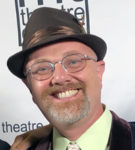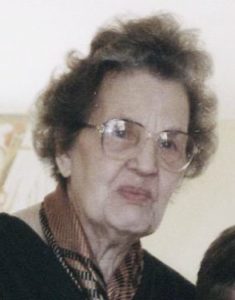

SAN DIEGO — San Diego’s Pride celebration began in 1974 with just four hundred people. Last year, participants from the LGBTQIA community and their allies numbered roughly 300,000. This year’s festivities had to be cancelled or moved online because of COVID-19, but the march goes on.
When we speak of this community, we often stop at the Ts or just abbreviate LGBT+. But the A in LGBTQIA stands for Asexual or “Aces.” These are people who really don’t want an intimate partner of either sex. Resisting societal and familial pressures, Aces are content to just be. I’d like to talk about one such person who played a pivotal role in my own family.
“How do you explain Dory?”
My Aunt Barbara put this question to my mom one day. To say that she was their father’s cousin makes Dory sound like a distant relative. But she was so much more than that. Welcome at every family celebration, Dory was a presence in their lives for as long as they could remember.
Before I go on, I should make one disclaimer. Dory never described herself as “asexual.” She was from a different generation where such things were not discussed. And it wasn’t your business to ask. So, I’m speculating here. But maybe if Dory had lived in our day, she would have been more open to the conversation.
Dory (1913 – 2005) was my Grampa Fred’s youngest cousin. Some families would call her “Aunt” for her years. But she insisted that, to my generation, she was our first cousin twice removed. We all called her “Cousin Dory” or just “Cuz.”
Women of her generation were expected to become housewives. But Dory went into real estate, becoming the vice president of her firm. She could have easily gotten a sweet deal on a nice house. But instead, Dory rented the first floor of a three-story house with an elevator. And since Dory and her landlady were such dear friends, Tante Ellie never raised her rent. So Dory was paying 1950s prices right through the 1980s, which put a few extra coins in her pocket.
In the 1960s, my mother’s generation started raising families. Soon, no one had a dining room big enough for Thanksgiving dinner. So in 1969, Dory reserved a banquet room at a hotel. And every year, we looked forward to seeing our aunts, uncles, cousins, great aunts, great uncles and second cousins. As a kid, I thought everyone did that. As I got older, I realized that, for most people, great aunts and second cousins were distant relatives, someone you might see at a funeral. But we all grew up together and some of us have stayed connected on Face Book.
And it occurs to me that had Dory not been the way she was -and had our family not simply loved and accepted her- Dory would not have had such a profound impact on our lives. We wouldn’t have grown up with the stories, affection and wisdom of our great aunts and uncles. Second cousins would be strangers. But we’re not. Dory has passed on, but we’re still connected because our Cousin Dory put herself in the center of that web. So don’t overlook the Aces in your life. They may be giving you more than you know.
Why some people identify with the LGBTQIA continuum -and to what degree society should accommodate them- is not a debate that’s going away any time soon. But at the end of the day, aren’t we all made in the image of Hashem?
*
Eric George Tauber is a freelance writer who specializes in coverage of the arts. He may be contacted via eric.tauber@sdjewishworld.com Free obituaries in memory of members of the San Diego County Jewish community are sponsored on San Diego Jewish World by Inland Industries Group LP in memory of long-time San Diego Jewish community leader Marie (Mrs. Gabriel) Berg.